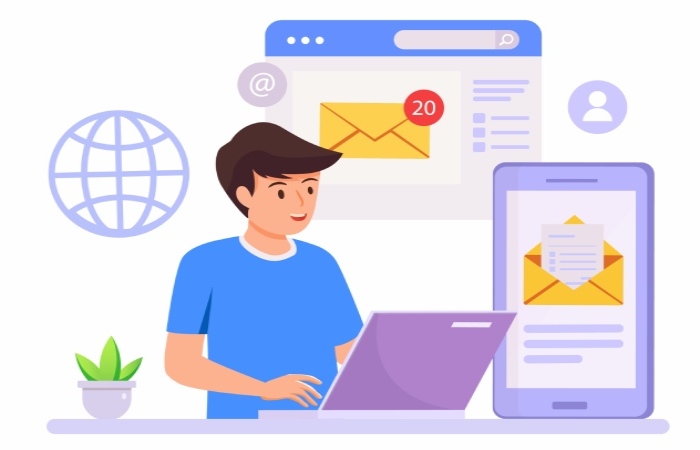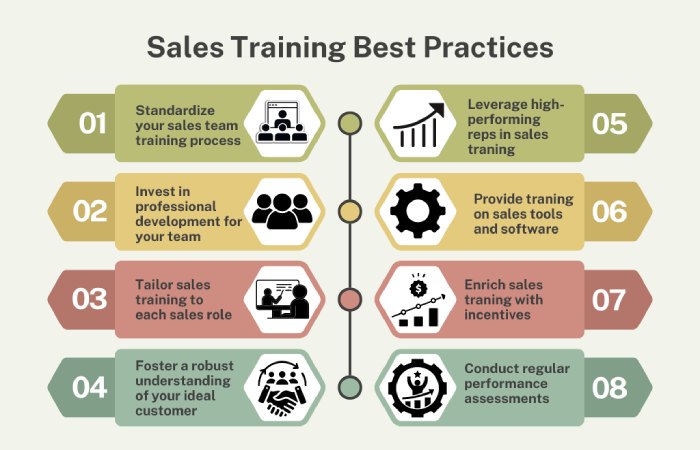42 Open-Ended Questions You Can Ask in Your Prospecting Emails
Cracking a sales deal is no easy feat, especially not in today’s competitive business world, where digital marketing strategies like email marketing play a crucial role in reaching out to potential clients. When it comes to the art of sales, an excellent way to engage with your potential clients is by asking your prospects the right questions. That is to say, instead of keeping your emails one-way, it is always a great idea to hook your target audience with thought-provoking questions that will initiate a two-way conversation.
But there’s a catch! You cannot ask any question for the sake of asking one. Unless it is the right one, the conversation will fade out before it even begins. A common mistake that most people make when reaching out to their potential clients is that they end up asking questions that can be answered in one word. For instance:
“ Is there anything you’d like to know more about?”
“Are you interested in scheduling a meeting to discuss this further?”
“Are you ready to sign up?”

These questions will surely trigger a response, but they will fail to engage the readers in a conversation that could lead to a successful sale. This is why it is recommended that you use open-ended questions that cannot be answered with a quick “yes” or “no”. This way, you can make the audience think about their situation more deeply.
How to Master the Art of Asking Open-ended Questions?
While things are a bit easier during a phone call as it allows for a dynamic exchange of several questions, emails are a different game. The art of asking the right questions in your sales emails lies in shifting gears from closed-ended to thoughtfully crafted open-ended questions. It’s not just about asking more questions but actually asking the right ones.
Unlike during a phone call, where you can ask a series of questions that can help you build a rapport, in emails, it’s recommended to focus on a single, well-chosen question. This is to avoid overwhelming your recipient and increasing the likelihood of getting a response. When choosing your question, ensure it’s relevant and insightful, designed to provoke thought but not so complex that it discourages a busy professional from responding. The question should invite your prospect to reflect on their needs or challenges related to your offering, providing you with valuable insights to tailor your follow-up communications.
To make things easier for you, we have curated a list of effective open-ended questions you can use in your next prospecting email based on the principles we discussed. Use this list as inspiration to curate questions that work for you, your prospect, and your business.

How to Uncover Prospect Problems with Open-ended Questions?
You might have often heard that when reaching out to your prospects, it’s crucial to focus on their specific challenges and pain points. Well, it’s true to a great extent, but it won’t be of any use if you target the wrong pain points or simply assume you know what’s troubling your prospect without confirming it.
To find out what are the things that your prospective customers are struggling with the most, ask open-ended questions instead of assuming their problems and challenges. This changes the dynamics completely. So, instead of focusing on your product or service, you’re valuing the audience, which can make a significant difference to your pitching efforts.
That is to say, by simply understanding their problem and offering an implicit promise to help them with it, you can capture your prospect’s attention.
Here are a few open-ended questions you can take inspiration from for your next sales email:
- Are you currently experiencing any [service-related] problems?
- In the past, have you encountered any [service-related] difficulties?
- What have you done in the past to resolve [service] problems?
- What steps are you currently taking to address [service] issues?
- Are you having trouble reaching your team’s goals?
- What challenges are you facing with your current solution?
- What are the challenges you face in your industry after highlighting common challenges in the prospect’s industry?
- What is your time/money spent on [common industry challenges]?

How to Identify Necessary Changes by Asking Open-ended Questions?
As you already know, change is never easy, especially when it means stepping out of our comfort zones. We tend to stick to what we know, even if it’s not the best option, because it’s familiar. This is exactly what would happen with your prospective customers; that is, most often, they would be reluctant to change. However, the knowledge of the fact that change is difficult can help you approach your potential clients.
By asking open-ended questions, you can gain valuable insights into the obstacles they face and what’s holding them back from making necessary changes. Here are some questions you can ask:
- If you wanted to change your existing process, what would it take?
- Can you tell me how [Company] manages product changes?
- In order to consider a change, what information would you need?
- Can you tell me how something like this is decided?
- Would your team need any additional information before making a decision?
- What makes you decide that a change is needed?
- Is there a way to improve the current system in your opinion?
- What needs to happen to change your company’s approach?
- How does [Company] keep things the same?
- What is the importance of exploring new possibilities for your business?
- Have you implemented a similar solution before?

How to Ask Open-ended Questions to Gain a Better Understanding of Your Prospects?
When it comes to connecting with your clients, your communication— your emails should revolve around them, not just your product or service. Understanding your prospects deeply—knowing their companies, their thought processes, and their challenges—requires empathy. This isn’t just about offering solutions; it’s about showing genuine interest and care for their situation.
Before you slide into their inboxes, make sure that you do enough research. By research, we don’t just mean scanning databases but also gathering insights about their company, culture, desired outcomes, etc.
Check out these questions that can help your prospects think about their current processes and results:
- How is this normally handled?
- Are you currently using a solution?
- Have you already tried any solutions?
- What is your experience with that?
- Would you describe the relationship you have with your suppliers in a few words?
- What are the advantages and disadvantages of this solution compared with your existing one?
- Can you tell me how much you spend on [service] currently?
- Can you tell me what your priorities are for the next quarter?
- Does your company place a high value on [solution]?
- How do you currently train your teams on new products?
- How important are features to you?

How Can You Leverage Open-Ended Questions?
By now, we have established that understanding your prospects and their challenges is crucial to connecting with them, but it is only the first step. Unless you show how your solutions can address these issues, you won’t be able to sell your product or service.
By using open-ended questions, you can gather the necessary information to tailor your solutions to fit their specific needs.
Additionally, these questions demonstrate to your prospects that your company is well-equipped to provide the ideal solution.
Here’s how you can effectively leverage open-ended questions to understand and solve your prospects’ problems:
- Could you benefit from learning new skills, features, or capabilities?
- Are you having trouble getting better results?
- Is there anything that needs to be done to make this a priority?
- If you had to do something differently, what would it take?
- What would you need to do to sign up for a trial?
- In your opinion, what would constitute a successful outcome?
- What would be the impact of solving [problem] on your 2020 goals?
- How would you describe your ideal solution?
- Is there any way we could demonstrate precisely how [solution] benefits {Company}?
- Can you tell me what features you need from {solution}?
- To make the decision easier, what kind of content can I send?
- Would you use an extra 30 minutes a day/$ 500 a month to benefit from [solution benefits}?
Conclusion
Now that you know asking open-ended questions in your emails helps you better understand your prospects, it’s time to follow this approach in your next email sales campaign. Want more insights into how to crack the code of email marketing? Nureply.com is the place to be!


